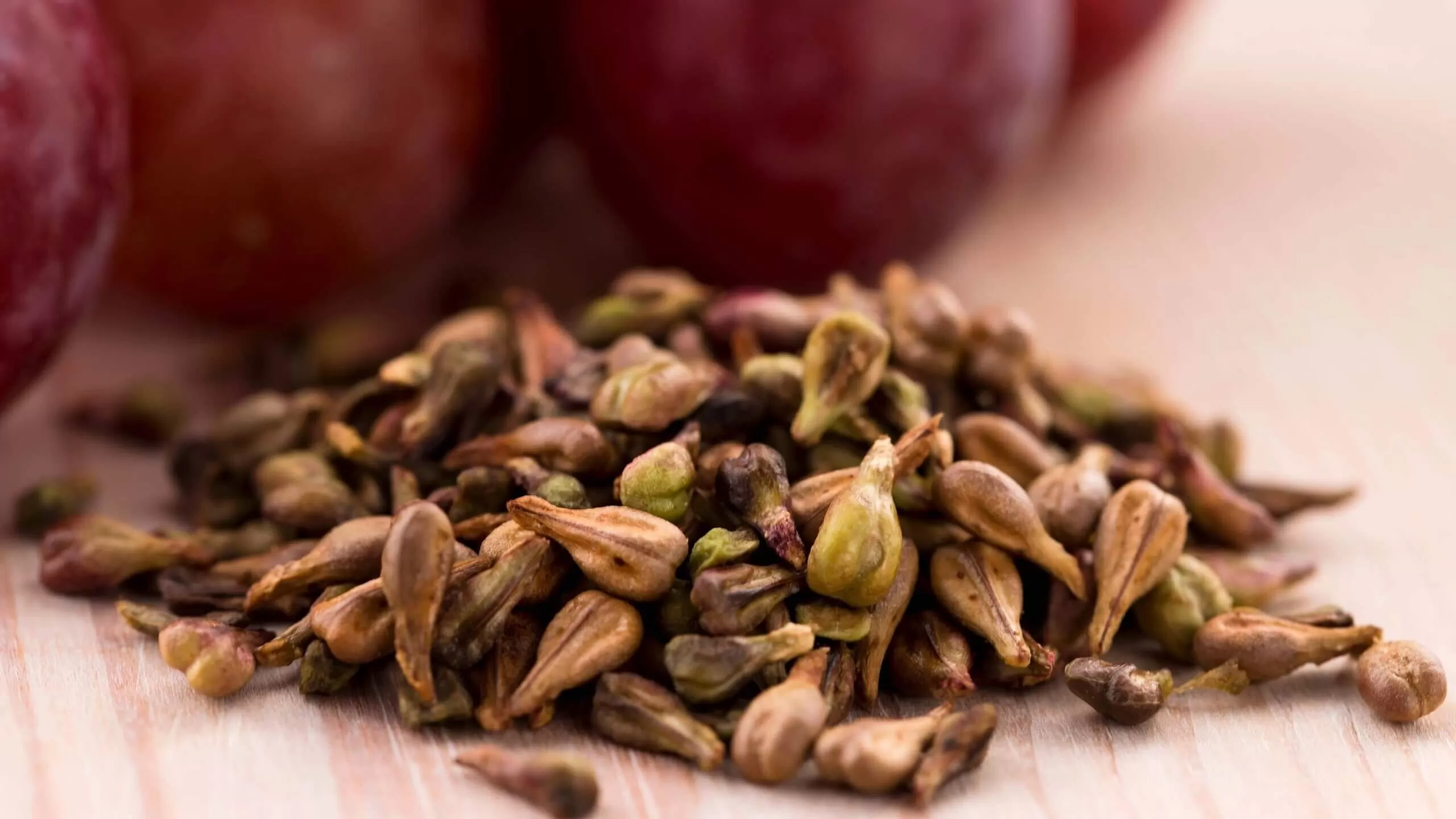- 0086-571-85302990
- sales@greenskybio.com
Who Cannot Take Grape Seed Extract?
2025-03-17
Grape Seed Extract, derived from the crushed seeds of grapes, is heralded as a natural supplement with a wide variety of health benefits. Rich in antioxidants like proanthocyanidins, flavonoids, and polyphenols, it has been widely used to combat oxidative stress, improve cardiovascular health, enhance skin health, and even support the immune system. While Grape Seed Extract is generally considered safe and effective, it may not be suitable for everyone. For certain individuals, taking Grape Seed Extract can lead to adverse effects or exacerbate pre-existing health conditions. This article explores who should avoid grape seed extract and why, offering a comprehensive guide backed by scientific findings and expert recommendations.
What Is Grape Seed Extract?
Before identifying who should avoid grape seed extract, it’s important to understand its composition. Grape seed extract is typically obtained from the seeds of wine grapes, and it is packed with potent antioxidants such as oligomeric proanthocyanidins complexes (OPCs). These antioxidants are believed to reduce inflammation, prevent cellular damage caused by free radicals, and support overall cardiovascular and metabolic health. Grape seed extract is commonly available in supplement form, including capsules, tablets, and powders, and is increasingly used alongside other natural remedies and in cosmetics.
Though beneficial for many people, grape seed extract is not always harmless. Certain medical conditions, drug interactions, allergies, and sensitivities must be carefully considered before consuming this supplement.
Who Should Avoid Grape Seed Extract?
Individuals with Allergies to Grapes or Wine
If you are allergic to grapes, wine, or any grape-derived products, you should avoid grape seed extract. Allergic reactions to grapes can vary in severity, ranging from mild discomfort to more serious symptoms such as hives, swelling, difficulty breathing, or anaphylaxis. Because grape seed extract is derived from the seeds of grapes, it may trigger similar allergic responses in sensitive individuals.
Symptoms of grape allergies can include itching, gastrointestinal upset, or skin reactions after ingestion. If you suspect a grape allergy but have not been formally diagnosed, consult an allergist for testing before trying grape seed extract.
Individuals Taking Certain Medications
Grape seed extract has been shown to interact with certain medications, which may lead to undesired consequences. If you are taking prescription drugs for a chronic condition, your doctor should always be consulted prior to adding any supplements, including grape seed extract, to your regimen. Some common medications that may interact negatively with grape seed extract include:
Blood Thinners (Anticoagulants or Antiplatelet Drugs): Grape seed extract contains compounds that may increase blood thinning effects. For individuals taking medications like warfarin, aspirin, or clopidogrel, concurrent use may increase the risk of excessive bleeding or bruising. This is particularly dangerous for people with clotting disorders or those undergoing surgery.
Blood Pressure Medications (Antihypertensives): Grape seed extract is known to lower blood pressure slightly. While this is beneficial for people with hypertension, combining it with blood pressure medications such as losartan, amlodipine, or beta-blockers may cause blood pressure to drop too low, potentially leading to dizziness, fainting, or other complications.
Cholesterol-Lowering Drugs (Statins): Grape seed extract contains antioxidants that can impact the activity of statin drugs, potentially lowering their effectiveness or heightening their side effects.
Anti-Cancer Medications: Certain antioxidants, including those found in grape seed extract, may interfere with the efficacy of chemotherapy drugs. Cancer patients should exercise caution and discuss options with their oncologist before taking any supplements.
Pregnant and Breastfeeding Women
Although grape seed extract offers health-promoting properties, its safety during pregnancy and breastfeeding has not been fully established. Limited studies suggest that some of the bioactive compounds in grape seed extract could potentially impact hormonal levels or pass into breast milk, although more research is needed to definitively confirm these effects.
Pregnant women are particularly vulnerable to unintended supplement interactions, as unstable hormonal levels and physiological changes increase sensitivity. To protect both mother and developing fetus, healthcare professionals recommend avoiding supplements like grape seed extract unless explicitly prescribed.
Children and Adolescents
The safety of grape seed extract in children and adolescents has not been thoroughly researched. Generally, supplements are formulated for adult use, and children’s smaller body sizes, developing immune systems, and metabolic differences make them particularly susceptible to potential side effects or toxicities.
While grape seed extract has antioxidative and anti-inflammatory properties that may theoretically benefit younger populations, its use in children should only be considered under pediatric supervision and with scientific backing. Without adequate evidence regarding its safety, grape seed extract cannot be considered appropriate for children or adolescents by default.
Individuals with Bleeding Disorders
Because grape seed extract enhances blood circulation and may thin the blood, it is not recommended for individuals with bleeding disorders such as hemophilia or thrombocytopenia. For people with these conditions, taking grape seed extract could heighten risks of spontaneous bleeding or worsen existing symptoms.
In addition, anyone undergoing surgery or dental procedures should stop taking grape seed extract several weeks prior to the procedure to minimize the risk of excessive bleeding.
Individuals with Low Blood Pressure (Hypotension)
Grape seed extract has natural vasodilatory properties, meaning it relaxes blood vessel walls and promotes improved circulation. While this benefit is important for individuals with high blood pressure, it can lead to complications for those who already have low blood pressure. Consuming grape seed extract in such cases may exacerbate hypotensive symptoms like fatigue, dizziness, or fainting.
People with Liver Disorders or Sensitivities
Though uncommon, grape seed extract has been reported to potentially impact liver enzymes in rare cases. Since the liver plays a crucial role in metabolizing both supplements and medications, people with pre-existing liver issues such as hepatitis or cirrhosis should closely monitor their reactions or avoid taking grape seed extract altogether unless cleared by their healthcare provider.
People Prone to Gastrointestinal Distress
While grape seed extract is generally well-tolerated, it may cause mild gastrointestinal discomfort, including nausea, bloating, diarrhea, or stomach cramps, particularly when taken in high doses. People with sensitive stomachs or pre-existing gastrointestinal conditions like irritable bowel syndrome (IBS) or gastritis should consider avoiding grape seed extract if symptoms worsen.
Potential Side Effects of Grape Seed Extract
Even for individuals who are not predisposed to specific health concerns, grape seed extract may cause side effects in some cases. These typically include mild symptoms such as headaches, dizziness, or nausea. People with sensitivities or metabolic differences may experience more pronounced effects. To minimize the risk of side effects, it is essential to follow recommended dosages and avoid self-prescribing without proper knowledge of your body’s needs.
Tips for Safe Use of Grape Seed Extract
For individuals who do not fall into any of the above categories, grape seed extract can be an excellent supplement when used safely and responsibly. Here are tips to maximize its benefits while minimizing risk:
Always consult your healthcare provider before adding grape seed extract to your routine, especially if you are taking medications, have underlying conditions, or are pregnant.
Follow the dosage instructions provided by your doctor or on the product label to avoid overconsumption.
Monitor your body for any adverse reactions during early use, and discontinue immediately if symptoms arise.
Choose reputable brands that provide purity certifications and third-party testing to ensure the product is high-quality.
Conclusion
Grape seed extract is undeniably a valuable supplement with a multitude of health benefits, yet it is not suitable for everyone. People with grape allergies, medication interactions, specific health conditions, children, pregnant or breastfeeding women, and individuals susceptible to bleeding or blood pressure-related complications should avoid taking grape seed extract to prevent adverse effects. Consultation with a healthcare provider is imperative for anyone considering its use, ensuring personalized recommendations based on individual health needs and sensitivities. Used appropriately and cautiously, grape seed extract can be an excellent addition to a wellness routine for those who meet its suitability criteria.
-
Is grape seed extract anti aging?
2025-03-17
-
Is grape extract good for you?
2025-03-17
-
Is grape seed extract safe for kidneys?
2025-03-17
-
Can I Take Grape Seed Extract Every Day?
2025-03-17
-
Is Grape Seed Extract Good for Your Liver?
2025-03-17














